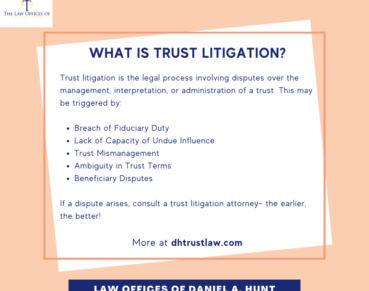Tips for a Successful Deposition
If you’ve received a Notice of Deposition, you need to understand what a deposition is and how to successfully participate in one. Any mistakes made in a deposition may come back later to haunt you if your case goes to trial, so you’ll want to make sure you’re well-prepared. In this blog post, we’ll explain what a deposition is and offer our tips for a successful deposition.
What is a Deposition?
A deposition is a legal term for a formal, recorded question and answer session. Depositions are important parts of the discovery process in litigated matters. A deposition draws out information relevant to a case and preserves the testimony of a witness for later use when filing motions with the Court or at trial.
The person asking the questions is called the examiner. The person being questioned is called the witness. The witness is under oath to tell the truth.
The examiner is usually one of the attorneys. They will ask the witness a series of questions to obtain relevant information and help their client establish their case.
Usually, the deposition is recorded by a stenographer, who creates a written record of the proceedings. In a video deposition, a video recording will be made of the proceedings.
How to Prepare for a Deposition
Before going to a deposition, you’ll want to prepare thoroughly. The first step is to make sure you have retained an experienced trust litigation lawyer to represent you.
Prior to the deposition, meet with your attorney for a preparation session. Review key documents and events together. Ask your attorney to offer examples of the types of questions you will be asked. If you’re particularly nervous about certain lines of questioning, your attorney can counsel you on the best ways to respond.
If a video deposition is being taken, be conscious of your dress and grooming. Keep in mind that a judge may someday view the recording if the case proceeds to trial..
Tips for a Successful Deposition
Now that we’ve established what a deposition is and how to prepare, here are six tips for a successful deposition.
- Tell the truth. Before your deposition, you will take an oath to tell the truth. Lying under oath carries the same penalties as perjury and will destroy your case.
- Make sure you understand the examiner’s question before answering. Listen carefully to the question, pause, then answer only if you understand the question. If you don’t understand, ask the examiner to rephrase the question. If a question misstates a fact, correct them in your answer.
- Remember the deposition will result in a transcript. Avoid nonverbal answers which cannot be included in the written record being created. All responses must be said out loud. Instead of saying “Uh-huh,” nodding your head, or using hand gestures, give an audible reply to the questions.
Since the transcript may someday be used in a trial, be careful in what you say and how you phrase your statements. Instead of answering questions immediately with the first thought that comes to mind, take your time in forming an accurate response. The deposition transcript won’t reflect pauses – only your verbal responses. It’s better to take your time. - Keep your answers succinct. Only answer the question that was asked. Do not help the examiner or offer more information than is requested. If you overshare information, you risk handing your opponent’s case to them on a silver platter.
- Stick to what you know. Your responses should be limited to what you saw, heard, or did. If you don’t know or remember the answer to a question, simply say, “I don’t know” or “I can’t recall”. Do not guess or speculate.
- Try to remain calm and neutral. Now is not the time to try to prove your case. Just tell your side of the story in an accurate and neutral manner. Avoid becoming argumentative, apologetic, or defensive with the opposing counsel. Leave the defense to your attorney.
Do I Have to Answer All Questions?
You may be wondering: “Do I have to answer all the questions I’m asked?” A witness is required to answer most, but not all, questions the examiner asks them. Witnesses do not have to answer the following types of questions:
- Private information: Questions about your health, sexuality, or religious beliefs.
- Privileged information: Information that is confidential, like a conversation had between you and your lawyer, your doctor, or your priest.
If you have any questions about these tips for a successful deposition, feel free to contact our office.
Law Offices of Daniel A. Hunt
The Law Offices of Daniel A. Hunt is a California law firm specializing in Estate Planning; Trust Administration & Litigation; Probate; and Conservatorships. We've helped over 10,000 clients find peace of mind. We serve clients throughout the greater Sacramento region and the state of California.




